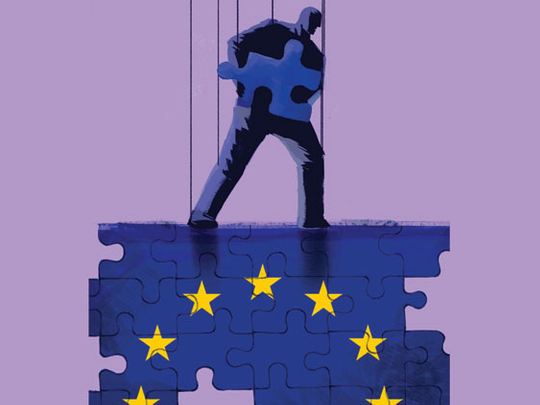
David Cameron’s defenestration at the hands of his European allies has engendered the usual war of words across the English Channel. It really seems that the era of megaphone diplomacy has, alongside Margaret Thatcher’s handbag, been resurrected. Yet it is hard to maintain any meaningful discourse when the political vocabulary being employed by both sides means different things to different players in different places.
Nowhere is this more true than where the words “federal” and “federalism” are concerned. As the prime minister was pushing his Sisyphean boulder up the Brussels hill, I was in Strasbourg, speaking at the Council of Europe on its ground-breaking report into the future of its troublesome cousin, the EU. Needless to say, the British government officially didn’t see much point to this exercise. This despite the fact that the council, comprising 47 countries and 800 million citizens, predates the original common market by quite some way, being formed in the aftermath of the Second World War to guard and promote human rights through the European convention and the European court. Its membership (the Russians are suspended) is drawn from all national legislatures involved and deserves a hearing, a sentiment with which our prime minister must surely sympathise.
What struck me more than ever was the extent to which the political meaning of federalism has been twisted and caricatured out of all recognition in what passes for British political debate on matters European these days. The true (continental as well as North American) definition was well summed up by Andreas Gross, the Swiss socialist under whose name the report was published. I doubt that even the most arch-Tory Euro-sceptic could take exception to his front-cover summation: “Rather than constituting a model for an ever closer political union or a European state, federalism implies a process of balancing power in a differentiated political order which enables unity while guaranteeing diversity.”
Most continental politicians would at one and the same time recognise, approve of and wish to apply that definition. Yet “federalism”, in the context of political and media usage in Britain, has come to mean the creation and imposition of a European superstate, one centralised in Brussels. Two generations of opportunistic British journalists and politicians alike must shoulder the blame for such wilful misinterpretation and misuse. It goes to the heart of the prime minister’s political conundrum.
The UK government has observed of that very same paper, “It should be nation states wherever possible and Europe only where necessary.”
Those of us who advocate the liberal cause will very much concur with this principle of subsidiarity. The report reiterates that “a European federal democracy, therefore, would not mean more Europe and fewer nation states”. The apparent argument between Britain and the rest of Europe is like an argument between two ships passing in the night — the same word means, politically, utterly contradictory things. It renders rational discussion of the European dimension within UK politics well-nigh impossible.
The situation could be made worse by the outcome of the Scottish independence referendum. Here is the nightmare scenario. Scotland votes for independence which I would very much regret and leaves the UK. In due course, there is a referendum on Europe in the rest of the UK (rUK as it is worryingly beginning to be referred to in government parlance) and, because of the predominance of votes in England (particularly the south-east of England), rUK finds itself not so splendid in its isolation.
It need not come to this, but if the debate is to engage properly then there have to be some Queensberry rules as to the meaning of words. We need less theoretical debate and more practical application and acknowledgement of what Europe can and does do, so that it is brought home to people in a relevant way. As Liberal Democrats and proponents of federalism, we must put our heads above the parapet, and recapture and disseminate the true meaning of federalism. We have to win the vocabulary before we succeed in the vision. We cannot do that alone.
We should, as Robert Burns said, “see ourselves as others see us”. Europe should be alert more than ever to how others see us — as a force for good in the world, however democratically imperfect — and work with that grain, rather than give up in despair. Definition would constitute a good starting point.
— Guardian News & Media Ltd
Charles Kennedy led the Liberal Democrats from 1999 to January 2006.










